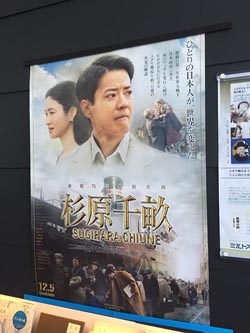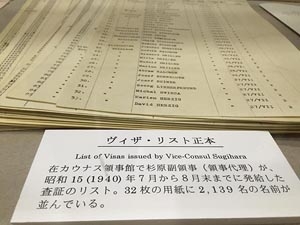In Japan, Hope for Humanity

There they were. One after the other. Some names were instantly recognizable. Some names weren’t. But on they went, page after page after page. The book of names I was reading was created in 1940, in the capital city of Lithuania. Yet here I was, in Japan’s modern-day capital, in 2015, thinking about and reading those names – thousands of them. It was at this point that you realize just how important one life is. It only took one person, a Japanese diplomat named Chiune Sugihara, to save 6,000 lives during the Holocaust. Reflecting back a year after the feature film release documenting Sugihara’s heroic story, which coincided with my visit to the wonderful nation, I’m still in awe of Sugihara’s moral audacity: His willingness to do the right thing no matter the cost to him is a lesson for all of humanity.
Standing in this archives room in a foreign capital thousands of miles from my home, I thought about this profound lesson and not only the impact it has had on the people it has saved and all of the good they have done in the world, but also the inspiration this message can bring to the world. It turned out that Sugihara’s message was especially relevant not only for the world, but also for the diplomat’s home nation. What I experienced when I stepped outside the archive and continued my tour of Japan spoke to Sugihara’s morals. Everywhere I went, from the streets of Tokyo and Matsue, to the Children’s Holocaust Museum in south central Japan, to the people I met in Hiroshima who after experiencing the tragedy of nuclear weapons have made it their life’s work to end such arms, my spirit was lifted because I saw the message of this hopeful story being told. Since I was in Japan for the opening weekend, ads for the movie were everywhere and most people I met told me they intended to see the film that very weekend.

A famous phrase, made popular after the Holocaust, is that he who saves one person, saves a generation. If that’s true, the late Japanese diplomat Chiune Sugihara saved thousands of generations. And the Japanese people are making sure that this heroism is not only remembered, but passed down to a new generation. That new generation is grappling with the important decision of how many Syrian and other refugees to allow to resettle in Japan. It’s a debate that is going on all over the world.
